 Professor of Public Health Nutrition and NIHR Research Professor
Professor of Public Health Nutrition and NIHR Research ProfessorDirector
NIHR School for Public Health Research
After graduation in 1987 Professor Ashley Adamson worked as a dietitian in the NHS before moving to Newcastle University as a Research Associate to work on the Northumberland cross sectional cohort studies. Ashley was awarded PhD from Faculty of Medicine Newcastle University in 1993. From 1992-95 she worked in clinical practice in a number of community dietetic posts and in primary care in London. Ashley returned to Newcastle University in 1995 to take up a post as Lecturer in the then newly created Human Nutrition Research Centre to develop a research programme in Public Health Nutrition. The Human Nutrition Research Centre is now an established University Research Centre directed by Prof John Mathers. As deputy director of the Human Nutrition Research Centre Ashley lead a thriving and vibrant team in Public Health Nutrition Research. In 2009 Ashley joined the Institute of Health & Society where she led the Public Health Improvement research theme until 2017. Ashley was awarded a personal chair in 2010, Fellowship of Faculty of Public Health in 2011, an NIHR Professorship in 2012 and appointed an NIHR Senior Investigator in 2018.
Ashley was appointed Director of Fuse in 2014 and National Director of NIHR School for Public Health Research (SPHR) in 2017.
https://www.ncl.ac.uk/hnrc/staff/profile/ashleyadamson.html#background
Dr Ruth Bartlett is an Associate Professor within Health Sciences, Co-director of the University’s Doctoral Training Centre in Dementia Care and Principal Investigator of an interdisciplinary, cross-faculty research project funded by the Alzheimer’s Society.
Previous research projects have been funded by the Economic and Social Research Council, national charities and local authorities. Ruth’s work focuses on the lived experience of persons with a disability, including dementia; together with Professor O’Conner (University of British Columbia) she has been instrumental in bringing a citizenship lens to the field of dementia studies. Ruth is lead author of Broadening the Dementia Debate: Towards social citizenship and has published and presented papers at key conferences related to disability and ageing for over fifteen years.
Ruth is an innovative methodologist with expertise in creative and participatory methods and working with members of the public and artists to communicate research; she has produced a range of high-quality outputs, including a toolkit, article and workshop for the Scottish Graduate School of Social Science and National Centre for Research Methods on using diary method in social research.
Ruth is co-editor of the journal Dementia: the international journal of social research and practice, with Dr Elaine Wiersma (Lakehead University).
She is an ESRC peer review college member, and mentor for the University of Southampton’s mentoring scheme.
Ruth has a background in mental health nursing and academic qualifications in politics, cultural politics, social research methods and Higher Education teaching practices. She was awarded a PhD in sociology by Oxford Brookes University.
https://www.southampton.ac.uk/healthsciences/about/staff/rlb1r10.page
 NIHR Academic Clinical Lecturer
NIHR Academic Clinical LecturerDr Lucy Beishon is currently working at the University of Leicester as an NIHR Academic Clinical Lecturer in Geriatric medicine with an interest in cognitive disorders. She is particularly interested in how brain blood flow is altered or damaged in dementia and how this contributes to the development or progression of different types of dementia.
Lucy was previously funded by the Dunhill Medical Trust on her research training fellowship project entitled ‘The Cognition & Flow Study: The effects of brain training on brain blood flow.’ This study investigated the use of cognitive or “brain training “as a treatment for Alzheimer’s disease and mild cognitive impairment and as prevention in healthy older adults.
In addition to Lucy’s research work she is also a specialist trainee in Geriatric Medicine and her long-term goal is to work as a Geriatrician with clinical and research interests in dementia.
Her current research focusses on improving physical care for older people on in-patient mental health units, and vascular mechanisms linking common disorders of ageing (dementia, delirium, and depression).
 School Manager
School ManagerDr Susan Bowett is the manager for the NIHR School for Public Health Research.
https://www.ncl.ac.uk/medical-sciences/people/profile/susanbowett.html
 Director of Cambridge Public Health
Director of Cambridge Public HealthProfessor Carol Brayne is a medically qualified epidemiologist and public health academic. She has pioneered the study of dementia in population.
Carol graduated in medicine from the Royal Free Hospital School of Medicine (University of London) and went on to train in general medicine. After gaining membership of the Royal College of Physicians she worked as a junior doctor at the National Hospital for Neurology and Neurosurgery. With a Training Fellowship from the Medical Research Council, she studied epidemiology at the London School of Hygiene & Tropical Medicine. Her higher degree (MD) focused on ageing and dementia (University of London).
Since the mid-80s Carol’s principal area of research has been longitudinal studies of the health of older people, with a focus on the brain, from a public health perspective. This included pioneering work bringing biology to populations including the creation of brain banks for medical research from population studies.
After joining the University of Cambridge, Carol became lead principal investigator in the MRC CFAS study. A longitudinal multicentre study, it has examined cognitive function and health in older people since the late 80s. Its results have informed national policy and now underpin our wider understanding of dementia: showing it can occur without the expected changes in brain pathology and that such changes, when they do occur, do not invariably lead to dementia. And that, age for age, dementia is less common than it was 30 years ago.
Alongside her Directorship of Cambridge Public Health, Carol holds the position of Faculty of Public Health, Academic & Research Committee Chair, Royal College of Physicians’ Special Advisor, NIHR Senior Investigator, SPHR member PI, CLAHRC theme lead and co-chair of the Alzheimer’s Society Research Strategy Council.
She also leads The Public Health of Ageing Research Unit, an involved team of specialised dementia researchers whose work includes specific risk reduction trials, studies of ageing and technology, age-friendly cities, plus the impact of ageing and dementia in the populations of low and middle-income countries.
A fellow of the Academy of Medical Sciences, Carol was listed among the highest cited scholars in the world across all disciplines in 2018 and awarded a CBE for services to public health medicine in the Queen’s 2017 Honours.
https://www.phpc.cam.ac.uk/people/visitors/professor-carol-brayne-cbe/
 Research Fellow in Hearing Sciences
Research Fellow in Hearing SciencesDr Emma Broome is a Research Fellow in Hearing Sciences at the University of Nottingham.
She completed her undergraduate degree at the University of Ottawa in 2011 followed by an MSc in Mental Health at Queen Mary University of London.
In 2015 Emma was awarded a three-year studentship from the Alzheimer’s Society as part of the TAnDem (The arts and dementia) Doctoral Training Centre at the University of Nottingham. Emma’s PhD was based on the Imagine Arts programme, an initiative encouraging partnerships between care providers and arts organisations to deliver a range of arts interventions to people living in residential care. In 2019 Emma was awarded her PhD in Dementia Research exploring the role of care staff in creative arts interventions in residential care homes.
Emma is the ECR representative within the NIHR Clinical Research Network Dementia National Specialty Group and a member of the Centre for Dementia in the Institute of Mental Health at Nottingham.
https://www.nottingham.ac.uk/research/groups/hearingsciences/people/emma.broome1
 Senior Lecturer in Social Care
Senior Lecturer in Social CareDr Paul Clarkson has worked in social care throughout his professional life. His background is in psychiatric and medical social work, including statutory work and assessment of cases of deliberate self harm of patients attending Accident & Emergency. He has held research appointments previously at the Institute of Psychiatry, London and St James’s Hospital, Leeds.
Paul is an active collaborator; with university researchers internationally, local authority and health staff and third-sector organisations. His current work is in the use of social care routine data, digital assessments and solutions for social care organisations, integrated data (between social care and the NHS), dementia support, improving social care research capacity and supervising post-graduate students in public health and social care research.
Paul is a specialist senior social care research advisor for the North West NIHR Research Design Service.
https://www.research.manchester.ac.uk/portal/paul.clarkson.html
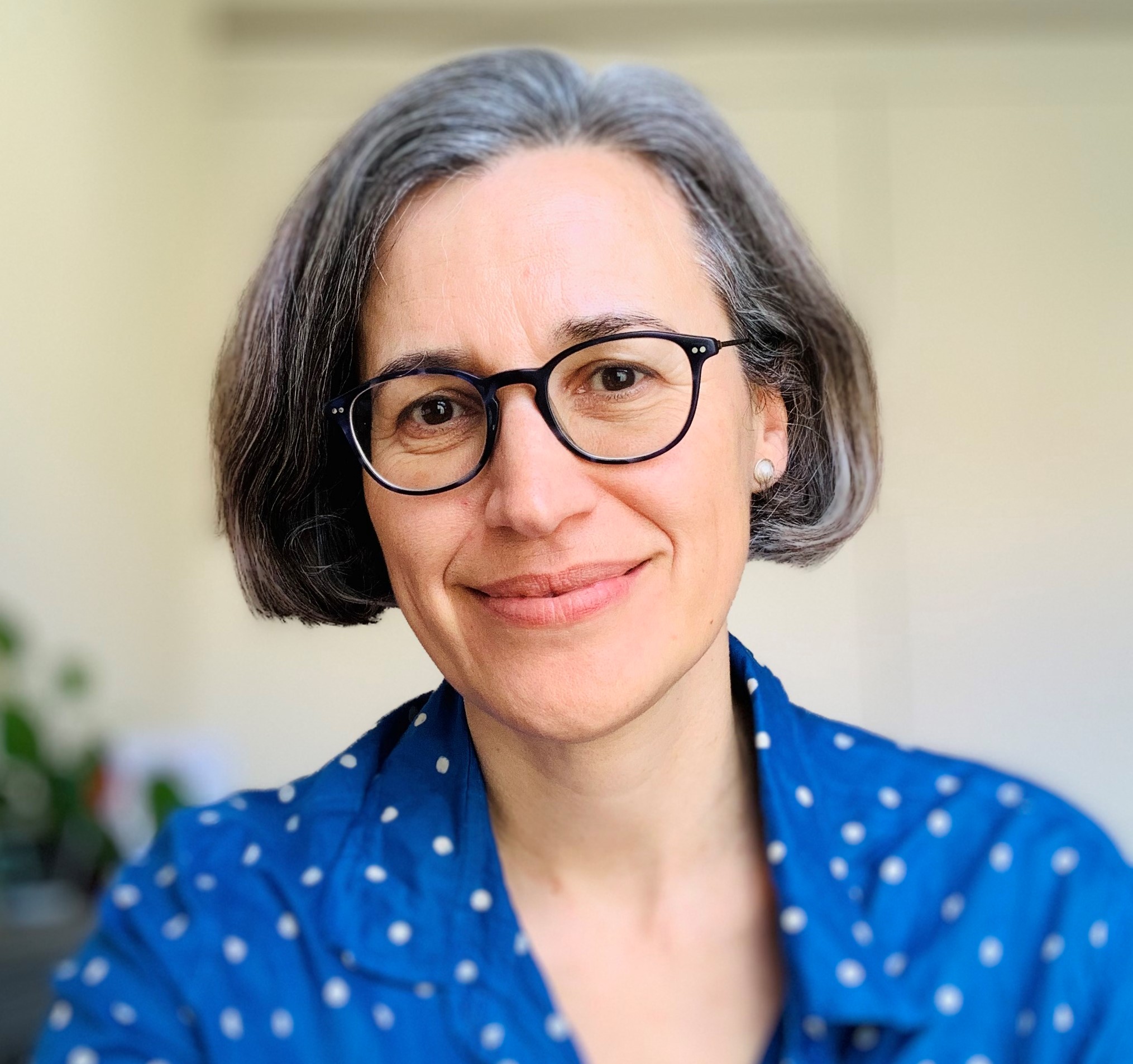 Assistant Professorial Research Fellow
Assistant Professorial Research FellowAdelina Comas-Herrera is currently Assistant Professorial Research Fellow at the Care Policy and Evaluation Centre at the London School of Economics and Political Science. Her main research interests are economic aspects of care, treatment and support of people with dementia, and long-term care financing, both in the UK and globally. She has extensive experience in developing simulation models of the future resources required to address long-term care needs and needs arising from dementia.
Adelina co-led the STRiDE (Strengthening responses to dementia in developing countries) project funded by UKRI and is the curator of LTCcovid.org, an initiative linked to International Long-Term Care Policy Network that shares evidence and resources to mitigate the impact of COVID-19 amongst those who use and provide long-term care. She has been a consultant for the Inter-American Development Bank’s ageing and long-term care programme and for the World Health Organisation’s Department of Ageing and Life Course, preparing a country self-assessment tool for long-term care. She was a co-author of the 2016 and 2019 editions of the World Alzheimer Report.
 NIHR Clinical Lecturer in General Practice
NIHR Clinical Lecturer in General PracticeDr Sam Creavin is trying to understand more about what tests are most useful to doctors when making diagnosis of dementia in general practice. He is also broadly interested in the topic of diagnostic science. Sam has reviewed the scientific evidence to support the use of two brief cognitive tests for diagnosing dementia: the MoCA and the MMSE.
Sam is currently reading for a PhD to investigate which tests are most useful for making the diagnosis of dementia in general practice and he’s made a brief video to outline my work. To do this Sam is leading TIMeLi, who are aiming to recruit up to 300 people who have symptoms of possible dementia and have been seen by their GP.
Sam’s MPhil investigated the association between pain and fatigue as co-occuring symptoms in the general population. During his academic foundation programme he investigated risk factors for dementia, specifically metabolic syndrome and caloric intake. Sam has also investigated response rates to postal surveys of GPs.
Sam is also a GP.
https://www.bristol.ac.uk/people/person/Sam-Creavin-7a04c325-7a39-4560-8308-8cbcaa763747/
 NIHR School for Primary Care Research Fellow / Senior Research Associate
NIHR School for Primary Care Research Fellow / Senior Research AssociateDr Jemima Dooley is a conversation analyst and qualitative researcher: her PhD was in how doctors deliver dementia diagnosis, analysing video recordings of diagnosis feedback meetings.
Jemima’s current work explores how decisions are made in urgent care in dementia, so with out-of-hours services making decisions about whether to send people to hospital. Jemima is also working on a co-produced project with a group of people with dementia called the Forget-Me-Nots, exploring peer support post-diagnosis and innovative methods of including people with dementia in research.
https://www.dementiaresearcher.nihr.ac.uk/podcast-profile-dr-jemima-dooley/
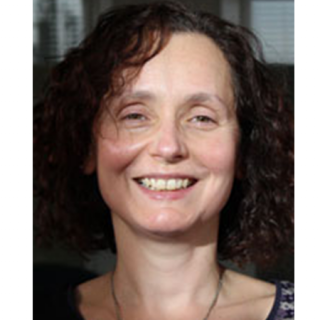 Research Associate
Research AssociateDr Becky Field is a research associate in Health Economics and Decision Science (HEDS) working as a qualitative researcher on the SIPHER (Systems Science in Public Health and Health Economic Research) consortium at the University of Sheffield. The consortium, funded by the UK Prevention Research Partnership, aims to provide insight into how people value different policy and societal outcomes affecting health and well-being.
Becky completed a PhD in June 2020 focused on acceptance and rejection of psychosocial interventions by people living with early dementia after diagnosis.
Prior to joining ScHARR, Becky was employed as a state registered occupational therapist in the National Health Service (NHS), and has worked in a variety of clinical settings, but mostly in community brain injury rehabilitation.
Becky’s research interests are how public policy and health services can support health and well-being, particularly in relation to dementia, older people, active aging and occupational therapy.
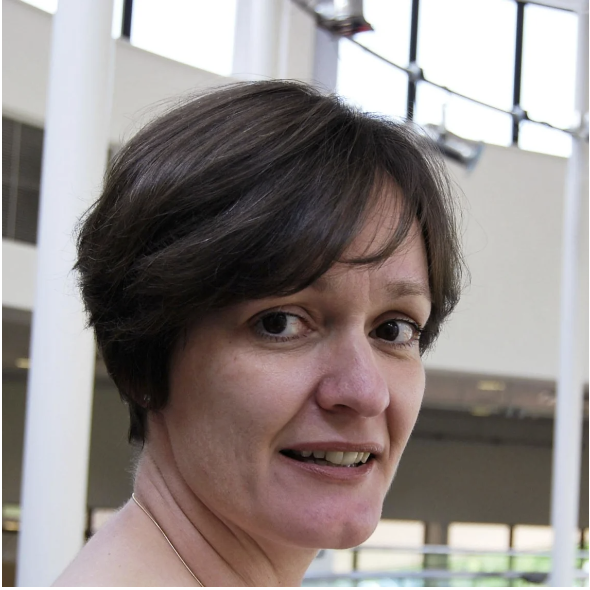 SPCR Assistant Director
SPCR Assistant DirectorDr Georgina Fletcher has worked in higher education management since 1997. She joined the National Institute for Health and Care Research (NIHR) School for Primary Care Research (SPCR) as Senior Scientific Manager in 2010 and am currently the Assistant Director of the School.
She is responsible for the School’s strategic planning and management ensuring that the programme delivery is as defined in the School’s business plan. She works closely with colleagues in each of the School’s nine academic partners; Bristol, Exeter, Keele, Manchester, Nottingham, Oxford, Queen Mary University of London, Southampton and University College London overseeing the School’s portfolio of research projects and cohorts of trainees.
Georgia represents the SPCR in various cross NIHR fora and other Primary Care organisations sharing good practice on issues such as programme management, governance, training, patient and public involvement, communications and finance.
https://www.spcr.nihr.ac.uk/about-us/Our-Teams/georgina-fletcher
https://www.research.manchester.ac.uk/portal/katrina.forsyth.html
 Research Associate
Research AssociateDr Kate Gibson is a postdoctoral applied health researcher with a background in sociology. She is currently involved in a range of applied qualitative research in ageing.
Kate is broadly interested social inequalities. Since working in applied health, she has extended her academic interest in Bourdieusian social theory and class to include an empirical focus on health interventions and policy.
Kate uses a range of qualitative methods. These include ethnography, photo/object elicitation, life history interviews, ‘Go-alongs’ and focus groups.
https://www.ncl.ac.uk/medical-sciences/people/profile/kategibson2.html
 Lecturer
LecturerDr Sarah Griffiths joined UCL in 2018 as a post-doctoral researcher to work on the Surrey Communication and Language in Education Study with Professor Courtenay Norbury. Prior to this she was a post-doctoral researcher at the Autism Research Centre at the University of Cambridge. Since 2019 Sarah has been a lecturer (teaching) in the Department of Language and Cognition at UCL.
 Lecturer in Nursing
Lecturer in NursingDr Ping Guo is Lecturer in Nursing and Lead for Advanced Practice Research Project/Dissertation module at School of Nursing and Midwifery. She is Visiting Lecturer in Palliative Care at the Cicely Saunders Institute of Palliative Care, Policy and Rehabilitation, King’s College London, UK.
Ping’s research expertise lies in intervention and health services research. Her research interests include palliative and end of life care, outcome measurement, and global health. She has experience of leading and managing different projects in clinical trials and observational studies, undertaking documentary reviews and qualitative interviews, and conducting health systems strengthening research.
Ping has successfully disseminated her research findings in peer reviewed journals and through presentations at national and international conferences. She has a good track record of securing competitive research funding.
https://www.birmingham.ac.uk/staff/profiles/clinical-sciences/guo-ping.aspx
Dr Barbara Hanratty’s research is concerned with older adults and encompasses three complementary themes; care homes, end of life care, the health consequences of loneliness and isolation. Equitable access to care, patient and caregiver experiences and the influence of socioeconomic disadvantage are particular interests.
Barbara’s clinical work is as a GP, also working as an honorary consultant in public health.
https://www.ncl.ac.uk/medical-sciences/people/profile/barbarahanratty.html
Dr Phil Joddrell is a Research Associate at the Centre for Assistive Technology and Connected Healthcare (CATCH) in the School of Health and Related Research (ScHARR) at the University of Sheffield. He has more than ten years’ experience working with people living with dementia in both clinical and research environments. Phil’s PhD investigated the use of touchscreen technology with people with dementia, with the aim of increasing the accessibility of existing apps.
Phil completed his undergraduate degree in Psychology at the University of York in 2007 and went on to work as an Assistant Psychologist in the older adult services at The Retreat, a not for profit provider of specialist mental health care in York.
In 2013, Phil decided to make the move into research and joined the Rehabilitation and Assistive Technology Group within ScHARR, working as a Research Assistant on two projects in the field of dementia care. InTouch explored the potential of games on touchscreen tablet computers for people with dementia and DigIT is developing an evidence-based protocol for the evaluation of assistive technology designed for people with dementia.
Phil’s research interests are focused on improving the quality of life for people diagnosed with dementia using everyday technologies.
 Research Fellow (Health Economics)
Research Fellow (Health Economics)Philip is a Senior Research Fellow in the Health Economics Unit. His research interests relate to the measurement and valuation of outcomes in economic evaluation. In particular, Philip is interested in the inclusion of broader outcomes within economic evaluations of health and social care interventions and the use of the capability approach within health economics.
https://www.birmingham.ac.uk/staff/profiles/applied-health/kinghorn-philip.aspx
 Director
DirectorProfessor
Care Policy and Evaluation Centre, LSE
Martin Knapp has been Director of the NIHR School for Social Care Research since 2009. He is also Professor of Social Policy and Professor in the Care Policy and Evaluation Centre (formerly PSSRU) at the London School of Economics and Political Science. He was Director of the Personal Social Services Research Unit (PSSRU) until June 2019.
Martin’s current research emphases are primarily dementia, child and adult mental health, autism and long-term social care; much of his work has an economic focus, and in all of it he seeks to tease out the policy implications. He has published almost 500 peer-review journal papers and 15 books. His work has had numerous impacts on policy and practice in these areas.
Dr Reena Lasrado is a qualified social worker and Research Associate in the Division of Nursing, Midwifery & Social Work at the University of Manchester.
https://www.research.manchester.ac.uk/portal/reena.lasrado.html
 MPhil/PhD Candidate
MPhil/PhD CandidateShoshana Lauter is an MPhil/PhD candidate within the Department of Health Policy and a recipient of the NIHR School for Social Care Research Studentship at CPEC. She conducts ethnographic research on the relationship between trauma-related psychiatric diagnosis and financial tenability amongst social care users.
Shoshana’s interests have developed from extensive study of medical sociology and class theory. She has researched and worked in various public health settings, including a major New York City hospital emergency room, a reproductive health and family planning clinic, and affordable public housing. Within these spaces, she critically analyses the cyclical relationship between poverty, mental illness, psychiatric practices, and social support use.
Shoshana received her BA in Sociology at Barnard College, Columbia University, in 2018 (senior thesis: The New Chronic Condition: An Observation of the Medicalization of Poverty in Urban Emergent Care). She received her MPhil in Sociology from the University of Cambridge in 2019 (dissertation: From Diagnosis to Qualifier: A Study on Trauma- and Stressor-Related Psychiatric Disorders and Access to Services in New York’s Inner City).
 Research Associate
Research AssociateDr Lyndsay Lindley has a long-standing interest in supporting and enabling people living with dementia. In addition to research into care and the lived experience of dementia, she has been involved with dementia support groups, including Singing for the Brain and reminiscence therapy.
Lyndsay joined the Social Policy Research Unit at York in 2019 as a qualitative researcher exploring people’s experiences of navigating and funding social care. Previously she worked at Newcastle University on qualitative studies within multi-centre randomised controlled trials. Her first post-doctoral role at Newcastle was on a study to improve hospital care for older patients with cognitive impairment.
In 2016, Lyndsay completed her PhD, an applied conversation analytic study of interaction between people with dementia and their everyday conversational partners.
 Director
DirectorRachael Litherland co-founded Innovations in Dementia in 2007. She has a background in psychology and advocacy and is particularly interested in ways of working that enhance people’s day-to-day lives. She especially enjoys working with people living with dementia in care homes, having begun her working life managing an advocacy project for care home residents with dementia in London.
Rachael has focused for the past few years on involvement methods and has seen a lot of change from the early 2000’s when she set up an involvement programme for the Alzheimer’s Society. She is really proud to see the DEEP network flourishing and is looking forward to concentrating now on recovery and discovery projects with people with dementia. Rachael’s grandma Lily opened up her eyes to what it means to live with dementia.
https://www.innovationsindementia.org.uk/about-our-work/who-we-are/
Director
NIHR School for Primary Care Research
Professor Christian Mallen is currently the NIHR Research Professor in General Practice and the interim Director of the Institute for Primary Care and Health Sciences. He leads Keele’s Global Health Research and is also the Director of the Wellcome Trust Doctoral Training Programme for Primary Care.
Christian trained in clinical medicine in Nottingham and North Staffordshire, completing vocational training in general practice in 2003. He worked clinically as a GP for NHS North Staffordshire.
Christian’s academic training was supported by Arthritis Research UK Doctoral Training, Career Progression, and Clinician Scientist Fellowships. This allowed him to develop expertise in the early diagnosis and management of common musculoskeletal disorders in primary care.
Christian is a Fellow of the Royal College of General Practitioners, Fellow of the Faculty of Public Health and a Founding Fellow of the Faculty of Clinical Informatics. Christian has been awarded both the Yvonne Carter and John Fry Awards for primary care research.
https://www.keele.ac.uk/globalhealth/meettheteam/christianmallen/#biography
 Professor of Social Work
Professor of Social WorkDirector
NIHR Policy Research Unit in Health and Social Care Workforce
Jill Manthorpe is Professor of Social Work at King’s College London and Director of the NIHR Policy Research Unit in Health and Social Care Workforce, based in the Policy Institute. She was made CBE in the Queen’s Birthday Honours List 2022 for services to social work and social care research.
From 2002-2018 she was Director of the Social Care Workforce Research Unit (initially sharing the position with Peter Huxley).
Professor Manthorpe is an NIHR Senior Investigator Emeritus and participated in a Senior Leadership programme funded by the NIHR with Ashridge Management School. Currently she is involved in advisory work for the Department of Health and Social Care on several subjects and works closely with several social care and health sector employers to link research, policy and practice.
In the past year she has presented research findings to international conferences in Australia, Singapore, Norway and Northern Ireland; she also travels widely in the UK to speak with local and regional networks, mainly through Making Research Count. She works on a number of Unit studies that are funded by the Department of Health and Social Care and also on other studies funded by the NIHR, the ESRC, and research charities with Unit colleagues and other research teams. Jill also provides assistance on workforce matters to local councils, NHS bodies, and employers on a pro bono basis and to user, carer and patient groups about evidence and communications. She provides expert advice to NICE and to other NHS Arm’s Length Bodies about care services and workforce initiatives.
Within King’s College London, Jill supervises post-graduate and doctoral students to build capacity in workforce research.
Jill is a Trustee of the Order of St John Care Trust and of the Centre for Policy on Ageing and Patron of the Greater London Forum of Older People.
She is a Fellow of Skills for Care and was appointed Fellow of the Academy of Social Sciences in March 2015.
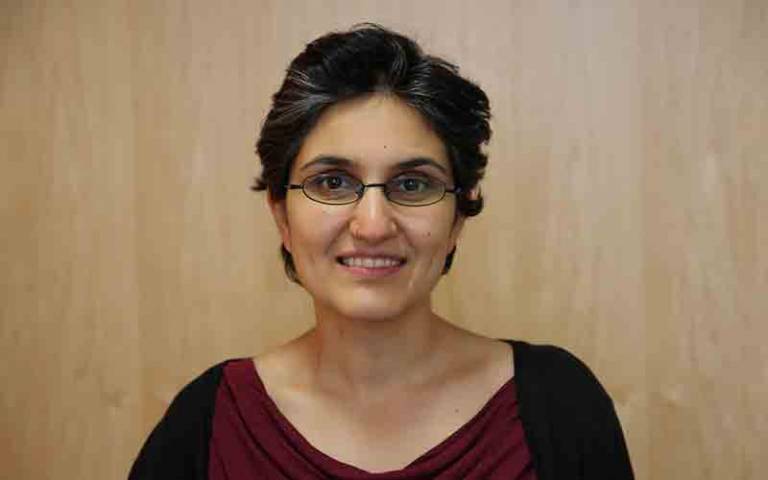 Principal Research Fellow
Principal Research FellowDr Mukadam completed her Medical Sciences undergraduate degree at Cambridge University with an intercalated BA in Experimental Psychology. She then studied Clinical Medicine at the University of Oxford and trained in general medicine and surgery at Oxford and Newcastle.
She completed her psychiatric training on the Royal Free Psychiatric Training rotation and obtained her CCT in Old Age Psychiatry in 2013. Dr Mukadam obtained a doctoral research training fellowship from the NIHR to design and test an intervention to encourage South Asian people to seek help earlier for dementia.
During her PhD, Dr Mukadam has collaborated on a number of studies, continuing her interest in inequalities related to ethnicity and expanding her research interests to include the epidemiology of dementia. Dr Mukadam’s postdoctoral work is focused on using inter-ethnic epidemiology to find new ways of preventing and treating dementia.
 Senior Research Fellow
Senior Research FellowDr Cathy Murphy is a postdoctoral researcher in the Bladder and Bowel Management research group, School of Health Sciences, University of Southampton. She has worked on a range of projects focusing on improving the quality of life of people living with long-term bladder and bowel management problems.
Cathy currently has a Fellowship with the Alzheimer’s Society with the goal of improving support for people living at home with both dementia and incontinence. She is also lead on a clinical trial of a urinary catheter device.
Cathy is an editor with the Cochrane Incontinence Group and co-chair of the International Consultation on Incontinence Committee on Management Using Continence Products.
https://www.southampton.ac.uk/healthsciences/research/staff/cathy-murphy.page
 Research Associate
Research AssociateDr Jennifer Owen is a Research Associate at the NIHR Health & Social Care Workforce Research Unit (HSCWRU), based in the Policy Institute. She joined King’s and HSCWRU in April 2021. At the Unit, Jen is leading an exploratory study, funded by the NIHR School for Social Care Research (SSCR), of the role of professional decluttering services as part of interventions with people who hoard. She was previously part of a team examining self-neglect and hoarding among older people, also funded by the NIHR SSCR.
In 2019, Jen completed a PhD based in the School of Geography and Planning at Cardiff University, funded by the ESRC. Her thesis examined what the growth of the self-storage industry in the UK could tell us about the changing needs of individuals and families in the face of life-course trajectories, transitions and events – including bereavement, moving home and abroad, and growing older.
With a background in social and cultural geography, Jen’s research is broadly concerned with the spatial processes and practices which construct everyday life. In particular, she is interested in the place of material objects in experiences of home, identity, mobility and the life course.
Jen is an Associate Fellow of Advanced HE, Communications Officer of the Royal Geographical Society Social and Cultural Geography Research Group, and co-founder of the UK Clutter Research Group. She has recently collaborated on the Methods for Change project, funded by ASPECT, which captures and shares the importance of social science methods for societal change.
 Senior Lecturer in Nutrition
Senior Lecturer in NutritionAngeliki’s research focuses on understanding the factors that influence dietary behaviour and developing strategies to improve dietary habits to prevent chronic disease.
Her specialist area of research is the exploration of traditional diets (definition, assessment of adherence, barriers and facilitators to adherence, acceptability, promotion, effect on chronic disease risk factors and incidence), by integrating theoretical models of behaviour change into interventions.
Angeliki’s research expands to the investigation of services for older and vulnerable adults, particularly Meals on Wheels and community meals. This involves qualitatively exploring views and experiences of service users and providers and evaluating effects of the service on nutritional, health and social care outcomes.
https://research-information.bris.ac.uk/en/persons/angeliki-papadaki
 Senior Research Fellow
Senior Research FellowDr Sahdia Parveen completed her BSc (hons) in Psychology with neuropsychology in 2006 at the University of Wales, Bangor; followed by a MSc in Clinical Psychology and a PhD in Health Psychology. Sahdia’s MSc thesis and PhD focused on the influence of ethnicity, culture and willingness to care on family carer outcomes (gains, distress and quality of life).
Following her PhD research, Sahdia joined the Ascertaining Barriers to Compliance project in 2011. This was a multi-national research project exploring the determinants to medicine adherence using health economics and health psychology models of behaviour.
In 2012, Sahdia joined the Yorkshire Quality and Safety Research group at the Bradford Institute for Health Research as a research fellow. Sahdia was involved with a range of projects examining patient safety factors in health care. She also developed an interest in patient and public involvement in research.
Sahdia was delighted to join the Centre for Applied Dementia Studies in August 2013. Sahdia was awarded a prestigious early career fellowship from the Alzheimer’s Society in 2015 worth £225k. She also won the Alzheimer’s Society Dementia Research Leaders award for patient and public involvement and engagement. Sahdia continues to be actively involved within the community and currently delivers Dementia Detectives workshops for schools. Sahdia has been a co investigator on several projects and most recently was the chief investigator on the Caregiving HOPE study.
Sahdia’s research interests include: diversity and dementia (particularly the experience of minority ethnic communities), family carers, implementation science, behaviour change, development and psychometric testing of questionnaires and patient safety. Sahdia’s work has received attention from the media and was recently featured on BBC Look North and the Vitoria Derbyshire show.
 Senior Research Associate
Senior Research AssociateJill is a researcher in the Centre for Health and Social Care Research (School of Policy Studies) currently working on the DICE (Diversity in Care Environments) study which explores the social inclusion of older people from diverse backgrounds in housing with care and support (HCS) schemes in England and Wales.
Jill’s research areas include: the health and wellbeing of adults with learning disabilities and family carers, mental health of teachers and students in secondary schools in England and Wales, mortality of people with learning disabilities and children’s social care issues.
Jill completed a PhD at Bangor University which comprised four individual but related studies adopting both qualitative and quantitative methods relating to adults with learning disabilities and their family carers and outcomes of health and wellbeing.
https://research-information.bris.ac.uk/en/persons/jillian-m-powell
 Clinical Professor
Clinical ProfessorProfessor Nadeem Qureshi graduated from University College London Medical School in 1986. He became a Member of the Royal College of General Practitioners (MRCGP) with Distinction in 1991, achieved his MSc in Health Service Research & Technology Assessment in 1999 from the University of Sheffield, and completed his Doctorate in 2006. He originally came to the University of Nottingham as a part-time clinical lecturer in General Practice in 1994.
Between 2004 and 2005 Nadeem was awarded a Harkness fellowship based in the Office of Public Health Genomics at the Center of Disease Control and Prevention in Atlanta. On his return from USA, he was appointed as a Clinical Senior Lecturer and promoted to Clinical Reader four years later. In 2011 he was appointed to the Clinical Professor of Primary Care post.
Nadeem co-leads the Primary Care Stratified Medicine (PRISM) research group at Newcastle.
 Emeritus Professor
Emeritus ProfessorDr David Reeves holds a first class honours degree from Newcastle and a PhD from Manchester. David worked for Beecham’s Research Laboratories for one year, and Marconi Space and Defence for two years, before joining the University of Manchester in 1981. Up until 2000, David was statistician at the Hester Adrian Research Centre (HARC), in the School of Education. HARC was a Centre dedicated to research for people with learning disabilities, and whilst there he developed strong links with other units in Education, including Special Education and the Centre for Human Communication and Deafness, and developed a number of collaborative projects on services for Deaf people, and on children with speech and language difficulties.
David moved to the Centre for Primary Care at Manchester in 2000 and became leader of the statistic team in 2004. David heads a group of four statisticians who provide support to all research projects and post-graduate students in the Centre.
https://www.research.manchester.ac.uk/portal/david.reeves.html
 Professor of Social Care Research and Director, Social Care and Society
Professor of Social Care Research and Director, Social Care and SocietyProfessor Catherine Robinson is Deputy Director of SSCR at Manchester.
Catherine leads on developing research collaborations and leveraging external funding. She has a global research portfolio in mental health, social care and mixed methods research, including suicide prevention in India and programmes of work in dementia care and NHS/social care integration.
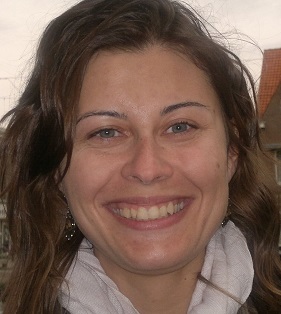 Research Officer
Research Officer NIHR Clinical Lecturer in General Practice
NIHR Clinical Lecturer in General PracticeDr Eugene Tang completed his undergraduate and academic foundation training in Edinburgh before taking up a NIHR Academic Clinical Fellowship position in General Practice in Newcastle. He was then awarded a NIHR Doctoral Research Fellowship, which was completed in 2020. Eugene is currently a NIHR Clinical Lecturer in General Practice.
https://www.ncl.ac.uk/medical-sciences/people/profile/eugenetang.html
 Research Associate
Research AssociateDr Natasha Tyler is a researcher currently working in the NIHR Greater Manchester Patient Safety Translational Research Centre at the University of Manchester researching safety in care transitions in mental health. She has a background in psychology, medical education and global health.
Natasha is a mixed methodologist with experience in evidence synthesis, consensus methods and tool/interventions development and assessment.
https://www.research.manchester.ac.uk/portal/natasha.tyler.html
 Senior Research Fellow
Senior Research FellowDr Mark Wilberforce is a social care and social work researcher with a background in economics, and a particular interest in the community support of older people with dementia and mental health needs. His work is around three key research interests:
Mark’s career in health and social care research began as an economist in the Department of Health before later joining academia. He has experience in a variety of impact study designs including randomised trials, cohort studies, and some quasi-experimental methods; in addition to general cross-sectional research, qualitative studies as part of mixed-method designs, and a range of literature review methods. He has a strong interest in the design and testing of outcome and experience measures, including Rasch/IRT techniques.
 Senior Research Associate
Senior Research AssociateJane Wilcock is based at the Centre for Ageing & Population Studies within the Research Department of Primary Care & Population Health, University College London. Her main research interests are in dementia, ageing, emergent technologies and trials of complex interventions in primary care and community settings. This includes a focus on improving the diagnosis and management and end of life care for people with dementia and their families.
Jane is an advocate for partnering with people living with dementia and care partners throughout the dementia research process. She is currently involved in two co-design studies creating an online dementia guide to support people after a diagnosis of dementia, Forward with dementia.
Jane is a qualitative methodology expert for the NIHR Research Design Service London and is a UCL Tutor teaching qualitative research methods in health care research across several courses. She is a member of the UCL Qualitative Health Research Network and Training Committee.